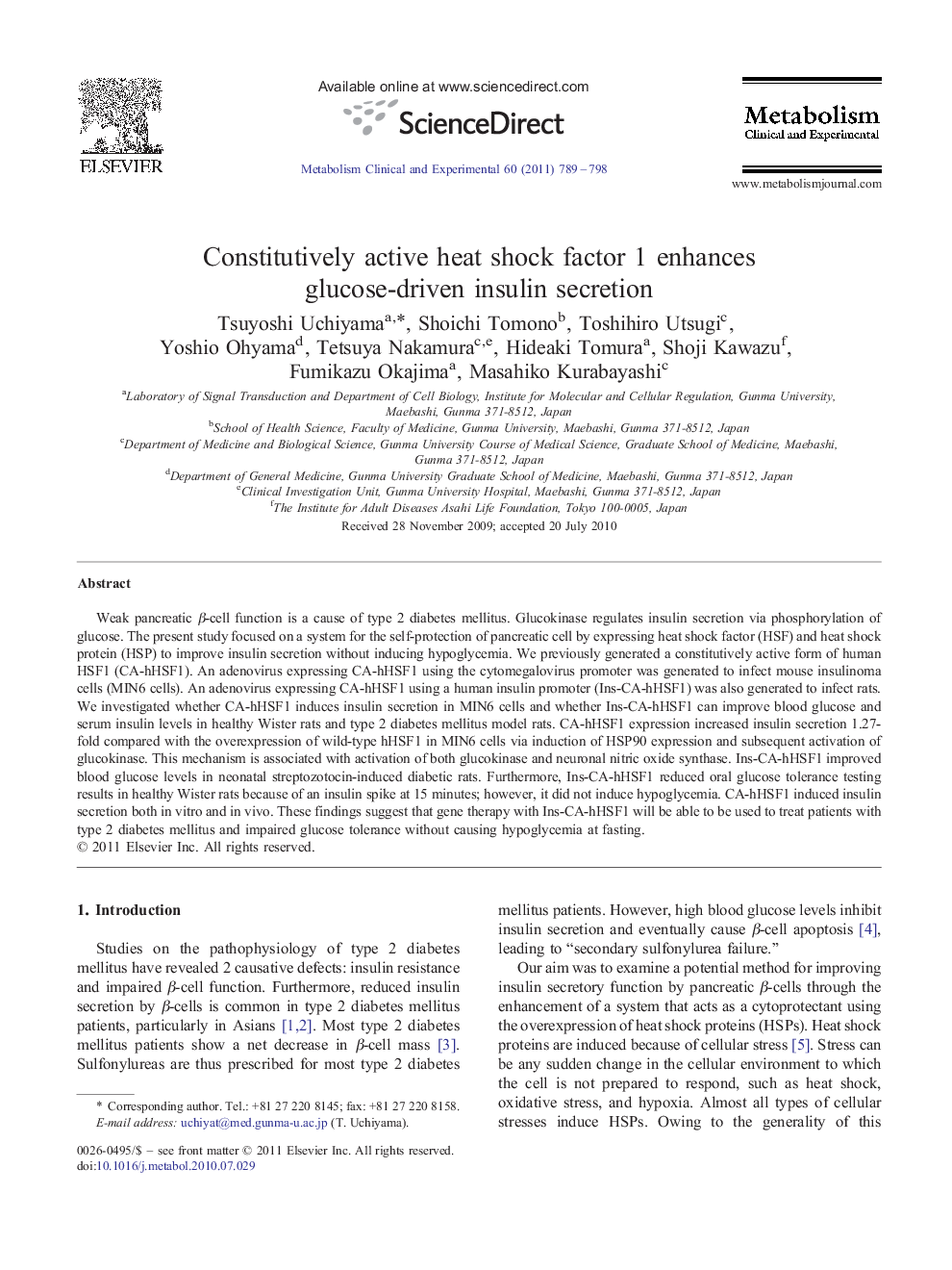| Article ID | Journal | Published Year | Pages | File Type |
|---|---|---|---|---|
| 2806470 | Metabolism | 2011 | 10 Pages |
Abstract
Weak pancreatic β-cell function is a cause of type 2 diabetes mellitus. Glucokinase regulates insulin secretion via phosphorylation of glucose. The present study focused on a system for the self-protection of pancreatic cell by expressing heat shock factor (HSF) and heat shock protein (HSP) to improve insulin secretion without inducing hypoglycemia. We previously generated a constitutively active form of human HSF1 (CA-hHSF1). An adenovirus expressing CA-hHSF1 using the cytomegalovirus promoter was generated to infect mouse insulinoma cells (MIN6 cells). An adenovirus expressing CA-hHSF1 using a human insulin promoter (Ins-CA-hHSF1) was also generated to infect rats. We investigated whether CA-hHSF1 induces insulin secretion in MIN6 cells and whether Ins-CA-hHSF1 can improve blood glucose and serum insulin levels in healthy Wister rats and type 2 diabetes mellitus model rats. CA-hHSF1 expression increased insulin secretion 1.27-fold compared with the overexpression of wild-type hHSF1 in MIN6 cells via induction of HSP90 expression and subsequent activation of glucokinase. This mechanism is associated with activation of both glucokinase and neuronal nitric oxide synthase. Ins-CA-hHSF1 improved blood glucose levels in neonatal streptozotocin-induced diabetic rats. Furthermore, Ins-CA-hHSF1 reduced oral glucose tolerance testing results in healthy Wister rats because of an insulin spike at 15 minutes; however, it did not induce hypoglycemia. CA-hHSF1 induced insulin secretion both in vitro and in vivo. These findings suggest that gene therapy with Ins-CA-hHSF1 will be able to be used to treat patients with type 2 diabetes mellitus and impaired glucose tolerance without causing hypoglycemia at fasting.
Related Topics
Life Sciences
Biochemistry, Genetics and Molecular Biology
Endocrinology
Authors
Tsuyoshi Uchiyama, Shoichi Tomono, Toshihiro Utsugi, Yoshio Ohyama, Tetsuya Nakamura, Hideaki Tomura, Shoji Kawazu, Fumikazu Okajima, Masahiko Kurabayashi,
